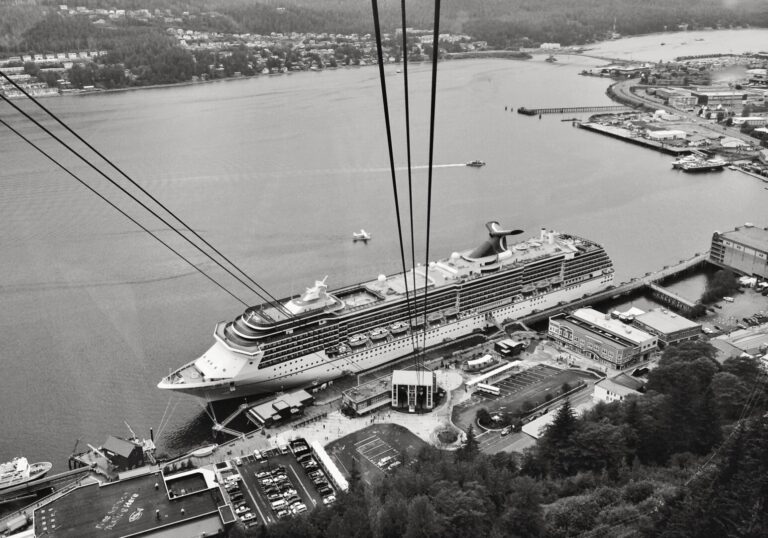In an era when urban space is theorized as an educative science enhancing productivity, business, and management, we witness the emergence of teaching as a dominant productive force for the first time in the history of capital. Given the decisive role of knowledge production in the development of globalized urbanization it becomes vital to identify critical pedagogies that not only engage the production of space but grasp the production of space as pedagogical. To do so, I attend to interventions into regionalist studies and the global city to argue for visual spatial tactics as a tool for a critical regionalist pedagogy capable of linking material, affective, and discursive practices with a placed-based approach to globalized urbanization. Students design a collaborative website documenting the spatial history of cruise ship tourism in Alaska as an argument over the right to the city. Identifying this living process—framing the cruise industry as a constitutive system fusing discourse, space, and identity to restructure history, nature, and region—becomes a means of questioning and revising otherwise generalized theories often brought to bear on tourist landscapes, on Alaska, and on critical pedagogy itself. This case study shows the emergence of the cruise ship city as inseparable from the onset of globalized urbanization and how it, in turn, provides edifying material to mobilize a critical regionalist pedagogy within contemporary forms of educative landscapes.
Articles by Richard Simpson
Richard Simpson received his PhD in Modern Thought and Literature from Stanford University. He has taught in the English department and American studies program at the University of Miami. His research tracing the economic, cultural, and material practices of American geographies of education has been awarded a Humanities Center Postdoctoral Fellowship at Carnegie Mellon University. He is recipient of a Louis O. Kelso Fellowship from the Rutgers School of Labor and Management Relations for his research examining the impact of cooperative theories of labor on late-nineteenth-century American education. Richard is currently completing a book on how urban form has been imagined as a pedagogical method from post-revolutionary America to present. He is currently Assistant Professor of Humanities at the University of Alaska Southeast where he teaches literature, rhetoric, and cultural studies.
